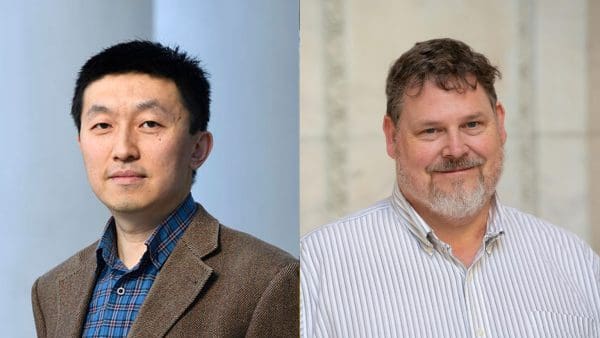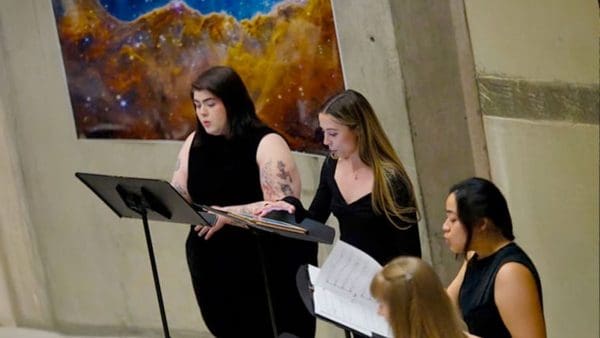Former Hopkins President Steven Muller first envisioned a Johns Hopkins relationship with China back in 1977. He wanted to replicate somewhere in Asia the success of Hopkins’ Bologna Center, the full-time graduate school in Bologna, Italy, that was established in 1955 by the School of Advanced International Studies (SAIS), and Muller viewed China as the ideal location. In his words, it was “the country of the future”—and a burgeoning world power.
Through various starts, stops, and hurdles, his vision in time became reality: In September 1986, the Hopkins-Nanjing Center opened its doors. The graduate student center, operated jointly by SAIS and Nanjing University, was one of the very first joint academic ventures between China and the United States.
Now Johns Hopkins’ connection to China has grown even deeper, with the creation of the Benjamin and Rhea Yeung Center for Collaborative China Studies. Made possible by a $10 million gift from Benjamin Yeung, a pioneering Chinese-American automotive industrialist, and his wife, Rhea, the center will promote innovative new approaches to the study of China. The center is managed from the Homewood campus and falls under the auspices of the Provost’s Office.
In the near term, Johns Hopkins envisions new academic and research initiatives funded through Yeung Center grants for collaborative projects across the institution.
At the Krieger School, the new center represents a boon for the East Asian Studies program, says center co-director Kellee Tsai, vice dean for humanities, social sciences, and graduate programs. She foresees new course offerings on China and the establishment of a study-abroad program in Nanjing for undergraduates. “Before, the Nanjing Center was really only open to graduate study,” she says. The Yeung Center should also make it easier for students to get research funding–previously a major challenge to obtain. “A graduate student here [could] do archival research work in China, even spend an entire year doing fieldwork,” she says.
The East Asian Studies program at Arts and Sciences currently has five full-time faculty, and Tsai believes the Yeung Center could become a strong recruitment tool to attract additional faculty–both full-time and visiting scholars–as well as graduate students and postdoctoral fellows interested in China. Krieger School faculty, through the center, can directly collaborate with their Chinese counterparts.
“This new center provides a venue to facilitate research exchanges with Chinese scholars,” she says. “We can pursue research questions from different perspectives, and design new projects, through workshops and conferences, on emergent areas of intellectual or applied interest.”
The Hopkins-Nanjing Center will be a natural host for some of this activity, Tsai says, but she foresees the forging and strengthening of relationships with other Chinese institutions such as Peking University, Tsinghua Universtiy, Fudan University, and the Chinese Academy of Social Sciences.
In addition to Tsai, the Yeung Center’s other two co-directors are Mike Lampton, director of the China Studies Program and dean of faculty at SAIS; and David J. Davies, American co-director of the Hopkins-Nanjing Center, a post he currently fills on an interim basis.
“The Yeungs’ magnificent gift will enable us to rethink the way we study and relate to China by fostering new opportunities for specialists in widely different disciplines to work closely together,” said university President Ronald J. Daniels in announcing the gift. “By bringing extraordinary talent from across the university together in this way, we expect to make great strides in the scope and scale of our work in and with China.”
Benjamin Yeung (pronounced “young”) founded the first Chinese company to be listed on the New York Stock Exchange and introduced the Zhonghua sedan, widely considered the first truly Chinese car. The Yeungs’ son, Jack, earned his undergraduate degree from the Krieger School of Arts and Sciences in 2005 and a certificate of graduate studies from the SAIS Bologna Center in 2006.
In many ways, the Yeungs’ gift has brought Steven Muller’s vision full circle.




